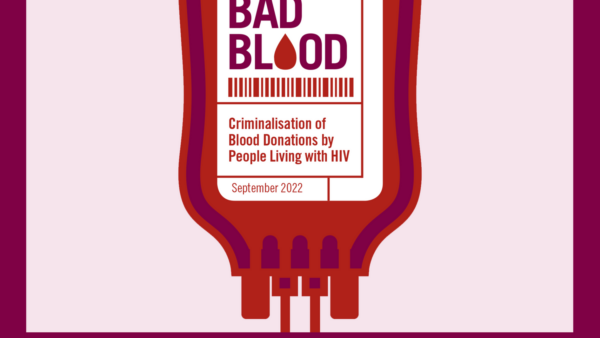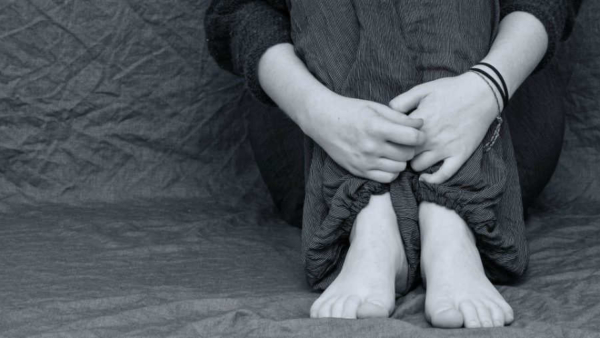Overview
El Salvador has an HIV-specific statute which has the potential to criminalise people living with HIV.
In 2017 Decree No. 562 of 2017, the Law on the Control and Prevention of Infection Caused by the Human Immunodeficiency Virus was introduced. This law contains a number of duties and restrictions, as well as protections, for people living with HIV. It repealed and replaced Decree No. 588 of 2001 which included many of the same restrictions and obligations.
Article 15 imposes a “duty to communicate” for people living with HIV, meaning any person who is aware of being HIV-positive must disclose this to their partners, permanent or temporary, as well as to their healthcare providers. A failure to disclose is considered a ‘serious infringement’ under Article 33 and is penalised with a fine of ten to fifty minimum salaries.
Article 16 prohibits people living with HIV from giving a blood donation or donating organs or other tissues, sperm, ovaries or breastmilk, except for research purposes. Violation of this provision is considered a ‘very serious infringement’ under Article 34 and carries a penalty of a fine of fifty-one to one hundred minimum salaries (see our report, Bad Blood, for a global analysis of the criminalisation of blood donations). Furthermore, this provision states that anyone who transmits HIV through improper, reckless or negligent use of human fluids or derivatives is liable to punishment under the Criminal Code, though it does not specify which provision(s) would apply.
Article 25 allows for forced testing in criminal proceedings following an order from a judicial authority.
In April 2022, proposals were made to the National Assembly which would provide for aggravated sentences for the offence of rape where the defendant was living with HIV or another sexually transmitted infection. In May, these proposals were adopted, allowing a maximum sentence of 36 years’ imprisonment for rape where an STI including HIV is transmitted.
There have been no known prosecutions of people living with HIV in El Salvador.
Laws
Decree 562 of 2017 – Law on the Control and Prevention of Infection Caused by the Human Immunodeficiency Virus
Article 14. Sexual practices
It is the responsibility of people in general to inform themselves and to practice their sexuality using scientific prevention methods to minimize the risks of acquiring HIV.
People living with HIV are obliged to practice their sexuality, using scientifically proven prevention methods, in order to to minimise the risks of transmission of the virus to other people.
Article 15. Duty to communicate
The members of the National Health System and the providers Private institutions should develop measures and actions to sensitize people with HIV, allowing them to have safer sex and their ethical responsibility in disclosing their serological status for the safety of your partner. The institutions will develop counseling to guide on the importance of disclosing your condition to your partner and for the correct use of barrier methods.
Any person who has been notified of their serological condition is obliged to communicate such situation to their partner, whether permanent or temporary.
It is the obligation of every person living with HIV to inform the health personnel who treat them about their condition.
The same obligation, applies to relatives or close friends in case the person with HIV is not able to report it.
Article 16. Prohibition of donation
No one living with HIV/AIDS may be a donor of organ, blood, or other human tissue for therapeutic use; nor can donate semen, ovules, breast milk or breastfeed, except for research purposes.
Anyone who makes improper, reckless or negligent use of human fluid or derivative resulting in the infection of other persons with HIV, will be punished in accordance with the Criminal Code and other respective laws.
Article 25. Diagnosis
The performance of any test for the purpose of diagnosing HIV infection, and the results thereof, shall be carried out in accordance with the rights set out in articles 13 and 14 of the Law on Duties and Rights of Patients and Healthcare Providers, before and afterof the test, except for the following cases:
a) That, in the doctor’s opinion, there is a need to carry out the test for the sole purpose of the patient’s health care, in order to count with better criteria to establish diagnosis and therapy; this circumstance should be recorded in the respective clinical file.
b) In the case of the donation of maternal milk, blood, semen, organs or tissues.
c) When it is required for procedural and criminal purposes and with a prior order from the competent authority.
Article 33. Serious infringements
The following actions or omissions shall be considered serious infringements:
a) Denying access to HIV information.
b) Denying access to HIV prevention and care related counseling and guidance.
c) Discriminating against or stigmatizing a person because of his/her HIV status.
d) Failure to guarantee access to prevention methods.
e) Failure to communicate about their serostatus, as described in Art. 15.
f) Refusal to inform the Ministry of Health of persons diagnosed and of HIV-related deaths, by institutions
and health professionals.
Article 34. Very serious infringements
The following actions or omissions shall be considered very serious infringements:
a) Denying voluntary access to HIV testing.
b) Mandating an HIV test.
c) Disclosing information without consent on the status and diagnosis of a person with HIV.
d) Refusing to provide comprehensive care for people with HIV.
e) To deprive the rights recognized in Articles 10 and 11 of this law.
f) Refuse to apply high quality, safe and effective procedures to both donors and recipients of organs, blood and
other human tissues, in the donation process.
g) Donate organs, blood or other tissues, in the knowledge of their HIV status
h) Not informing the patient of his/her serological condition.
i) Failure to comply with biosafety regulations.
j) Violating the technical standards, protocols and clinical laboratory procedures approved by the Ministry of Health in relation to this suffering.
Decree n° 588 of 2001 - Law on the Control and Prevention ff Infection Caused by the Human Immunodeficiency Virus (Repealed by Decree 562 of 2017)
Article 10. Prohibition of donation
No one living with HIV/AIDS may be a donor of organ, blood, or other human tissue for therapeutic use; nor can donate semen, ovules, breast milk or breastfeed, except for research purposes. Anyone who makes improper, reckless or negligent use of human fluid or derivative resulting in the infection of other persons with HIV, will be punished in accordance with the Criminal Code, and will also be suspended for the exercise of the profession or trade during the term of the sentence.
Article 33. Serious infractions
The following actions or omissions are considered serious crimes:
(…)
e) to not communicate one’s seroligical status as described in article 15
Article 34. Very serious infractions
The following actions or omissions are considered very serious crimes:
(…)
g) donating organs, blood or other human tissues while being aware of one’s positive status.
Article 28. Duty to communicate
Any person who has been notified as being HIV positive is obliged to communicate this situation to his or her partner, whether permanent or temporary, present or past, and other persons with whom he or she has had, has or may have risk contacts. It is the obligation of every person living with HIV/AIDS to inform the health care personnel who treat him/her about his/her condition. The same obligation will apply to family members or relatives if the person with HIV/AIDS is not able to inform them.
HIV Justice Network's Positive Destinations
Visit the El Salvador page on Positive Destinations for information on regulations that restrict entry, stay, and residency based on HIV-positive status, as well as access to HIV treatment for non-nationals.

